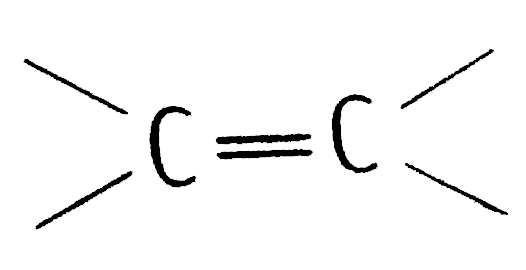The addition of HCl will not supress the ionisation of
CH3COOH
C6H5COOH
H2S
H2SO4
The correct Answer is:D
To solve the question "The addition of HCl will not suppress the ionization of which compound?", we will analyze each option based on the concept of the common ion effect and the nature of the acids involved.
1. Understand the Common Ion Effect:
- The common ion effect states that the addition of an ion that is common to two solutes will suppress the ionization of a weak electrolyte. This occurs because the equilibrium shifts to the left, reducing the concentration of ions produced by the weak electrolyte.
2. Identify the Compounds:
- The compounds given are:
- CH3COOH (acetic acid)
- C6H5COOH (benzoic acid)
- H2S (hydrogen sulfide)
- H2SO4 (sulfuric acid)
3. Determine the Nature of Each Compound:
- CH3COOH (Acetic Acid): This is a weak acid that partially ionizes in solution:
CH3COOH⇌CH3COO−+H+
- C6H5COOH (Benzoic Acid): This is also a weak acid and behaves similarly to acetic acid:
C6H5COOH⇌C6H5COO−+H+
- H2S (Hydrogen Sulfide): This is another weak acid:
H2S⇌2H++S2−
- H2SO4 (Sulfuric Acid): This is a strong acid that ionizes completely:
H2SO4→2H++SO2−4
4. Analyze the Effect of Adding HCl:
- When HCl is added to a solution, it dissociates completely to produce H⁺ ions:
HCl→H++Cl−
- The addition of H⁺ ions will shift the equilibrium of weak acids (CH3COOH, C6H5COOH, H2S) to the left, suppressing their ionization due to the common ion effect.
5. Conclusion:
- Since H2SO4 ionizes completely and does not establish an equilibrium (it is a strong acid), the addition of HCl will not suppress its ionization. Therefore, the answer to the question is:
- H2SO4 (option 4).
Final Answer:
The addition of HCl will not suppress the ionization of H2SO4.
- The common ion effect states that the addition of an ion that is common to two solutes will suppress the ionization of a weak electrolyte. This occurs because the equilibrium shifts to the left, reducing the concentration of ions produced by the weak electrolyte.
- The compounds given are:
- CH3COOH (acetic acid)
- C6H5COOH (benzoic acid)
- H2S (hydrogen sulfide)
- H2SO4 (sulfuric acid)
- CH3COOH (Acetic Acid): This is a weak acid that partially ionizes in solution:
CH3COOH⇌CH3COO−+H+
- C6H5COOH (Benzoic Acid): This is also a weak acid and behaves similarly to acetic acid:
C6H5COOH⇌C6H5COO−+H+
- H2S (Hydrogen Sulfide): This is another weak acid:
H2S⇌2H++S2−
- H2SO4 (Sulfuric Acid): This is a strong acid that ionizes completely:
H2SO4→2H++SO2−4
- When HCl is added to a solution, it dissociates completely to produce H⁺ ions:
HCl→H++Cl−
- The addition of H⁺ ions will shift the equilibrium of weak acids (CH3COOH, C6H5COOH, H2S) to the left, suppressing their ionization due to the common ion effect.
- Since H2SO4 ionizes completely and does not establish an equilibrium (it is a strong acid), the addition of HCl will not suppress its ionization. Therefore, the answer to the question is:
- H2SO4 (option 4).
The addition of HCl will not suppress the ionization of H2SO4.
Similar Questions
Which of the following will supress the ionisation of acetic acid in aquoeus solution ?
View SolutionWhich of the following will supress the ionisation of acetic acid in aquoeus solution ?
View SolutionThe intermediate during the addition of HCl to propene in the presence of peroxide is :
View SolutionThe addition of HCl to 1−phenylpropene gives-
View SolutionIonisation of NH_(4) OH is supressed by the addition of NH4Cl because
View SolutionThe additions of HCl to an alkene proceeds in two steps. The first step is the attack of H+ ion to
 portion which can be shown as
portion which can be shown as
View SolutionAssertion (A): On addition of NH4CI to NH4OH,pH decreases but remains greater than 7.
Reason (R) : Addition of ⊕NH4 ion decreases ionisation of NH4OH, thus [ΘOH] decreases and also pH decreases.
View SolutionAssertion (A): When small amount of acid or base is added to pure water, its pH undergoes a change.
Reason (R) : Addition of an acid or a basic increases the degree of ionisation of water.
View SolutionThe factor by which the degree of ionisation of 200mL of 0.1M benzoic acid solution (Ka=4×10−5) changes on addition of 100mL of 0.2MHCl is:
View SolutionThe addition of propene with HOCl proceeds via the addition of:
View Solution
